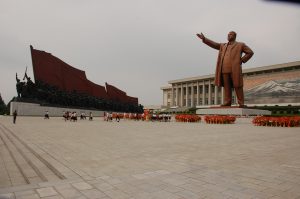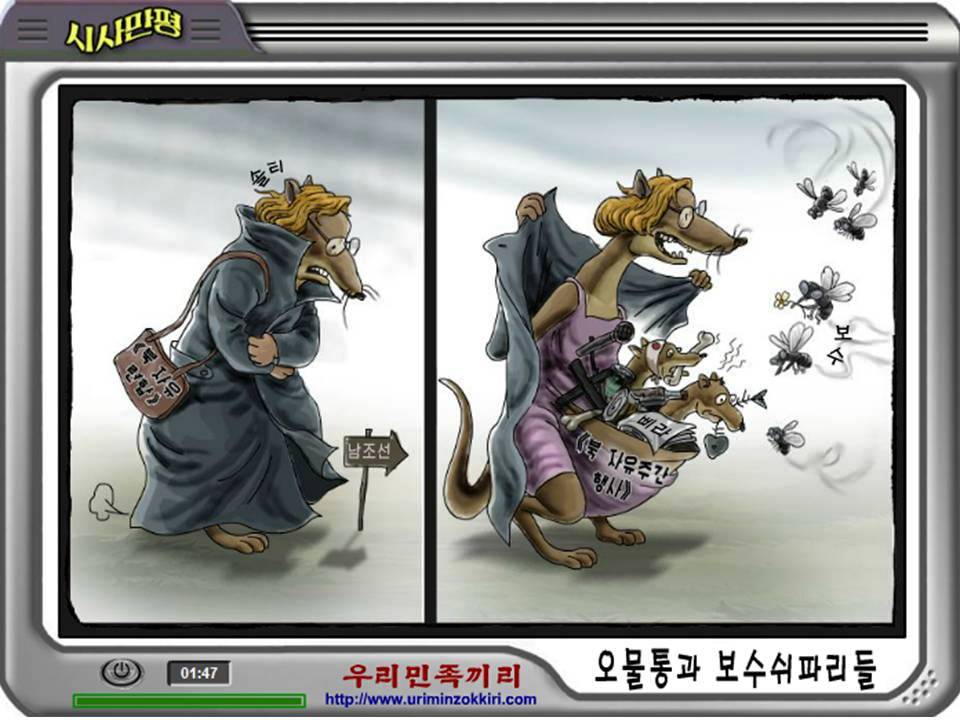
Update: The full interview is now available online.
—
What’s going on in North Korea? The First Issue of Religion & Liberty in 2017 will explore this question in depth. The main feature will be an interview with Suzanne Scholte, president of the Defense Forum Foundation. She has spent the last two decades fighting for the freedom, human rights, and dignity of the North Korean People and is considered one of the world’s leading activists. Along with 20 years of experience comes a wealth of knowledge on North Korea, totalitarian regimes, and the plight of Korean refugees. Unfortunately, there wasn’t enough room in the print version of Religion & Liberty to run the entirety of the interview. As a preview for this publication — which will be available soon — enjoy a snippet of our conversation. A link will be added as soon as the entire issue is available online.
###
R&L: We are constantly seeing news out of North Korea, that is—for lack of a better phrase—bizarre. Articles about Kim Jong Un feeding his uncle to dogs and that sort of thing. Do you think the regime is that sadistic and cruel? Do you think we’re just so fascinated by a nation completely cut off that we believe this could be going? Maybe a little of both?
Scholte: I think, yes, on all that. This regime is sadistic and cruel. Just talking about recent events, Chang Sŏng-t’aek, who was Kim Jong Un’s uncle, devoted his entire life to that regime and was successful in helping the regime and then all of a sudden he falls out of favor and is basically publicly humiliated and then brutally killed. It just shows the level of cruelty that this regime represents. There is, unfortunately, a tendency for people to pay attention to the suffering in North Korea because of the sensationalist stories. And some of them I’m not sure about. I do not believe he was fed to dogs; that report came out of China.
Part of the problem with reporting about North Korea, is that we cannot go and see the political prison camps. We cannot freely go and travel the country. We can only go there under close watch of the government. So it’s difficult to try to corroborate some of the stories. Sometimes the media will jump on some of the more sensational stories. One interesting thing about the defectors is that there’s a self-policing among them. They know that they were doubted. And therefore their credibility is always on the line. So they’re very careful, the defectors that I work with, they’re very careful to make sure that if we have a witness that comes over, that they’ve been vetted, and they’re really telling their true story.
We saw this happen with a terrible, terrible incident with a young man born in a prison camp, Shin Dong Hyok. It is a fact he was born in a political prison camp. It is a fact he suffered in the political prison camp. But he lied about which particular political camp he was in. I have a great deal of compassion for him, but I always was suspicious of his story because he wouldn’t work with the defectors that we’re close to, including other political prison camp survivors. And you know that when you’ve had a shared experience, you tend to want to be around people that have been through your same experience. We had hosted a number of survivors of the political prison camps, but he didn’t really want to be part of that. That was suspicious to me. They knew that some of the things he was saying were not true. But I do want to say that his story…what he went through was horrific—he is the living proof that children are in these camps. Another North Korean defector that we work very closely with, he is the living proof that children are sent to these camps. Because he was in a camp from 8 to 18 years old, because his grandfather was accused of showing disfavor to the regime and doubting the regime. So three generations of the family being sent to jail. But in conclusion, because we cannot go freely to North Korea and see with our own eyes, sometimes there will be stories that will be picked up that haven’t really been vetted properly. As a result, we are very careful about the witnesses that we bring to testify and speak in the United States.
Why do you think governments and Western journalists have put so much focus on the nuclear issue and not the human rights threat for the citizens of North Korea?
This has been a deadly and costly mistake from the very beginning. I mentioned the Congressional hearing we organized in 1999 on the North Korean political prison camps. Well, a reporter from Voice of America wrote this op-ed about that hearing and the Clinton Administration spiked it. The reporter was so upset he actually leaked it to me. So this is April 1999, “The Department of State does not clear the attached VOA editorial for the following reasons…” Number one, it’s not based on U.S. government verified information, only reports from defectors.” Big question mark. “A question of accuracy. Number two, the timing is not good. The four-party talks just completed and visit to underground construction site is upcoming,” which was their nuclear site. The policy of George W. Bush was the same as Bill Clinton’s: we have to reach a deal on the nuclear issue first, then, we can talk about human rights.
That has been a horrible mistake.
During all the talks whether Four Party talks or Six Party talks, millions of North Koreans have died. And, not talking about the human rights atrocities fed into the lie that the North Korean people tell their own citizens, which is we hate them. North Koreans are told by the regime that Americans are Yankee imperialist wolves that occupy South Korea, and they want to destroy them, and so we have to build these nuclear weapons, because the United States is ready to attack us. They’re evil people. And they’re occupying South Korea. We fed into that lie because we didn’t talk about these human rights issues. We kept talking about the nuclear issue. But this was the policy up until the latter years of the Bush Administration, when Ambassador Chris Hill, who was so bound and determined to have a nuclear deal with the North Koreans, sidelined human rights concerns, even though President Bush was very passionate about the North Korean human rights situation. But during the talks, they would not address these things at all. Because Chris Hill was bound and determined to have a negotiation on the nuclear issue. That was in the most recent years. The Obama Administration has been very careful to keep the focus on human rights and the nuclear issue and give them equal importance. During this period the North Korean defectors kept telling us, “They will never give up their nuclear weapons. They only use negotiation to extract aid.” Hwang Jang yop (highest ranking North Korean defector and author of juche ideology) said that in 1997 when he defected, “Human rights is their Achilles heel. Human rights is what you have to talk about. They’re killing their own people. They’re using you in these talks. And they’ll never give up their nuclear weapons.” Of course he said that years ago. Nobody listened to him. But we know that he was right. But at least we’ve come to that point now where we realize that.
Regarding journalists reporting on these issues, it is hard for journalists to report on this unless they’ve talked to the defectors, because Western journalists can’t go see a political prison camp. So that’s been part of the difficulty.
They can verify the existence of the political prison camps. We have satellite images. And that’s why through my work, I have put such an emphasis on bringing defectors hear, eyewitnesses, who can testify because you can’t go to the political prison camps and see them for yourself. But guess what? We can bring the camps to you by having you talk to Kim Young Sun, whose entire family was sent to a camp because she mentioned that she knew Kim Jong-il’s mistress. And she spent years in the camp and lost her entire family except for one son. You can talk to her and learn about the camps. I have this problem again, and again, and again. Trying to get reporters to pay attention to the story. But they want to see things with their own eyes.
It’s really difficult for journalists to get on-the-ground intelligence to be able to report about this because it’s so dangerous in the area and they can’t freely go to North Korea. So that’s another challenge.
What is the relationship between South Korea and China?
Actually it’s really great. South Korean culture including K-pop music is really popular in China. So they have a very good relationship. But China is very upset that South Korea wants to develop the missile defense system. So that’s caused a lot of tension right now. And also the fact that China blocks the Commission of Inquiries’ referral of Kim Jong-un to the International Criminal Court. They won’t support the human rights agenda, because China and Russia’s attitude is, “That’s not our job to interfere in how a nation deals with its own citizens.” They do not think that states at the UN and the Security Council have any right to talk about anybody’s human rights issues. And of course, what’s the whole purpose of the UN? It’s to promote security and human rights.


